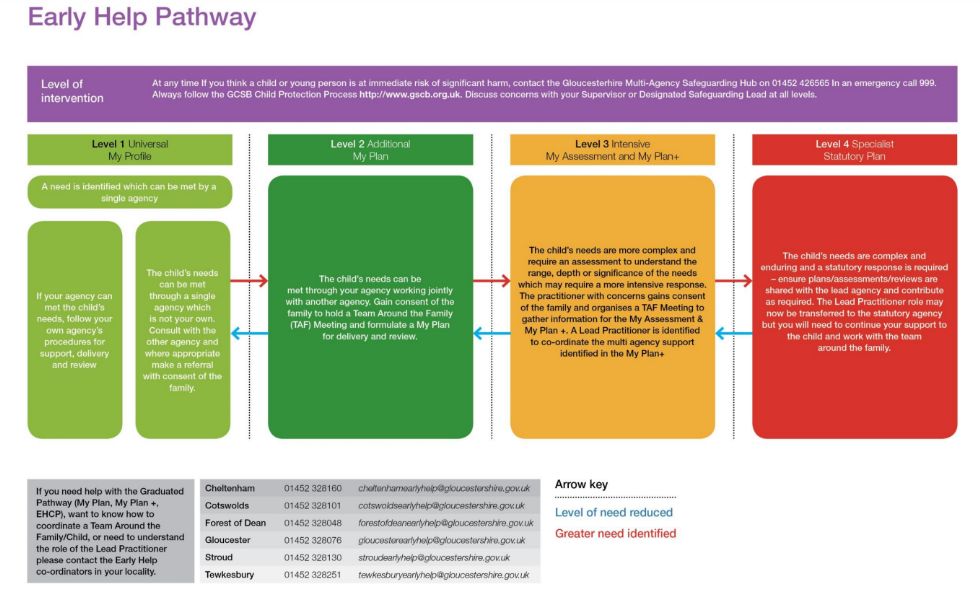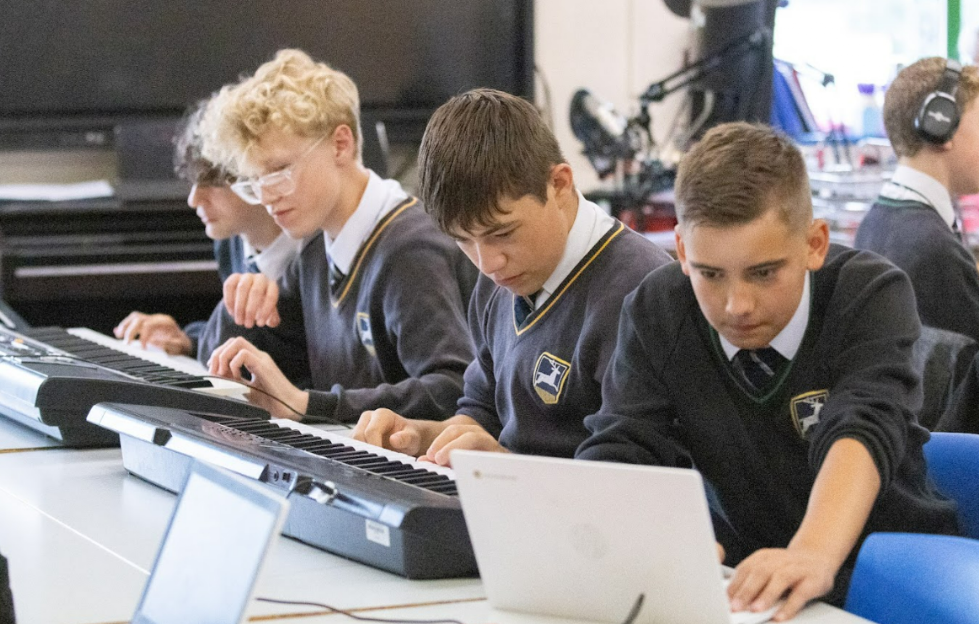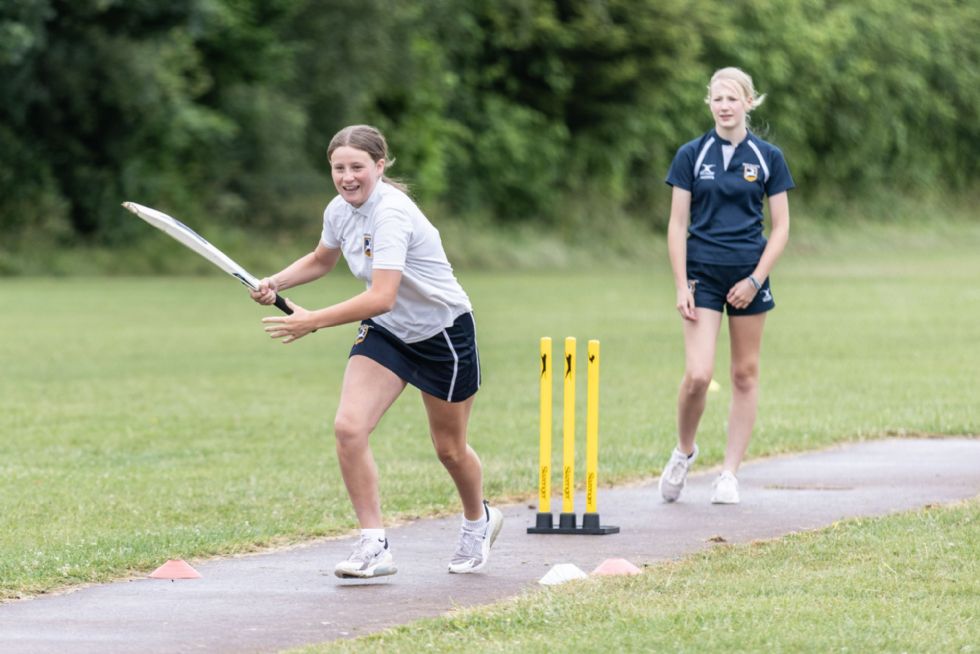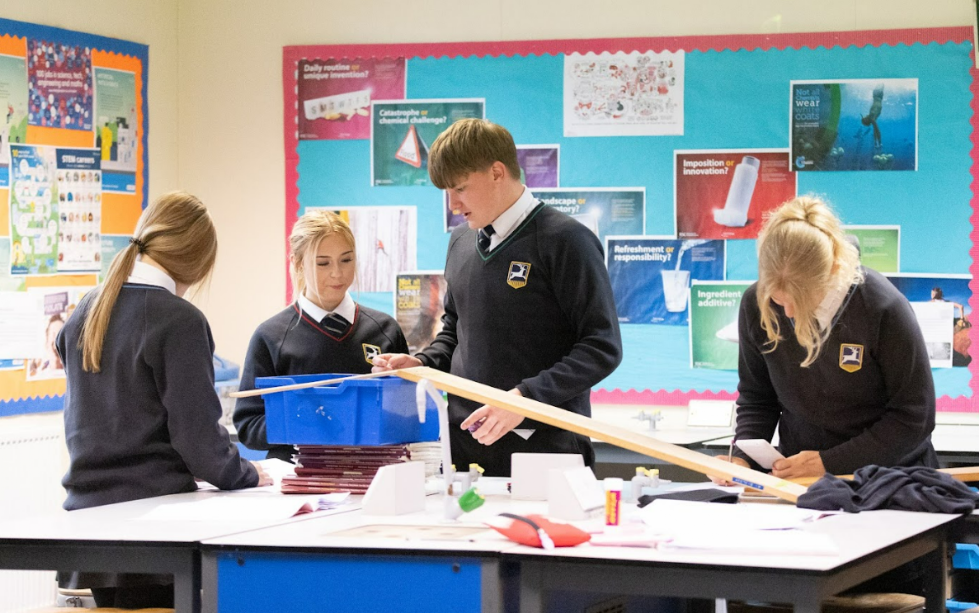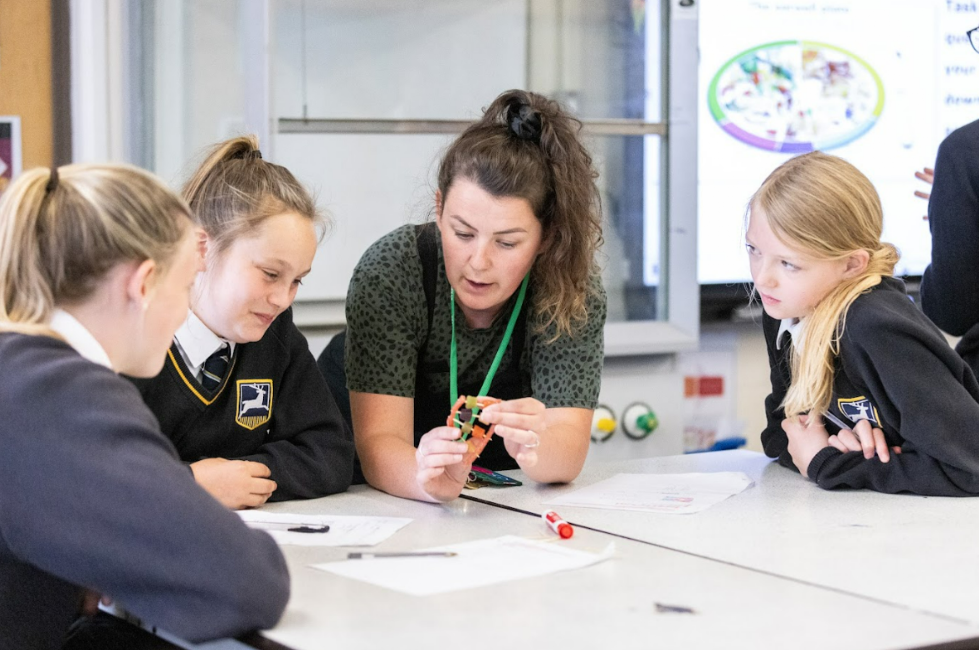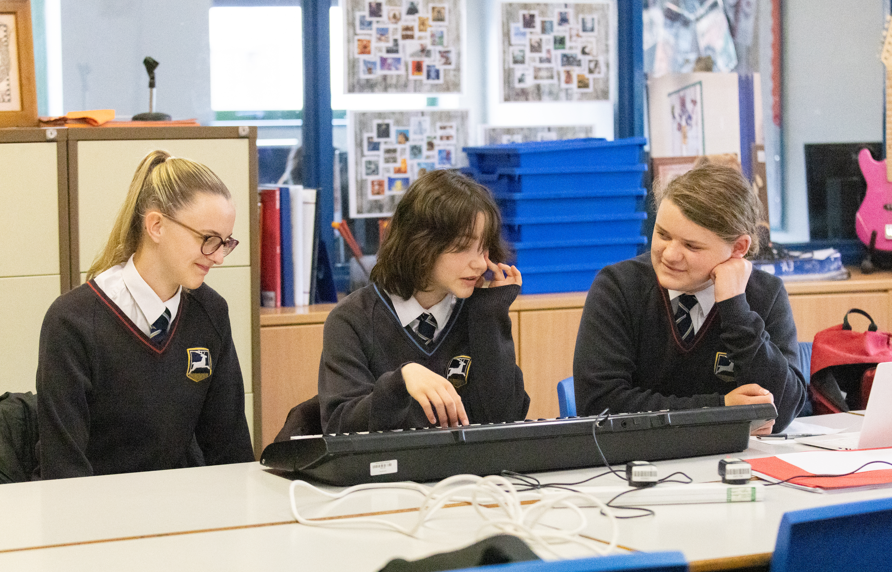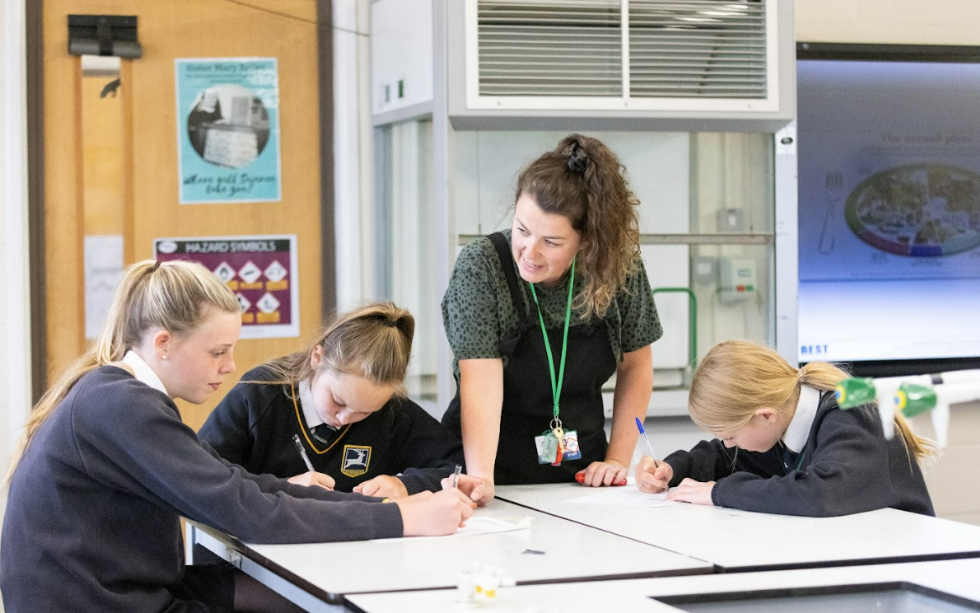Graduated Pathway
What will happen if my child does have SEN?
The Code of Practice outlines a graduated response to pupils' needs, recognising that there is a continuum of need matched by a continuum of support. It will follow the sequence of Assess, Plan, Do, Review. This response is seen as an action that is additional to or different from the provision made as part of the school’s usual differentiated curriculum and strategies.
If the school identifies that there is an additional need then they will be placed on the SEND register that is shared with staff. This process maintains information about the identification, needs and provision for each pupil. Where concern is expressed that a pupil may have a special educational need, the class teachers in consultation with the SENCo, take early action to assess and address the difficulties. The school uses Edukey as an online tool to store key information and plans for students who are on the register and to add appropriate provision to their needs.
Parents are consulted and a pupil profile may be started at this stage. The educational needs are identified and the level of support they are expected to offer is clarified.
Review of pupils on the SEND register takes place three times a year. For pupils with Education, Health & Care Plans an annual review meeting is held involving the student, parents, school and additional supporting services.
What does the Graduated Pathway look like?
At Dene Magna, we adopt a ‘quality first teaching’ approach. The key characteristics of high quality teaching are:
· Highly focused lesson design with clear WALTS and WILFS
· Use of retrieval practice at the start of every lesson
· High demands of pupil involvement and engagement with their learning
· High levels of interaction for all pupils
· Appropriate use of teacher questioning, modelling and explaining
· An emphasis on learning through dialogue, with regular opportunities for pupils to talk both individually and in groups
· An expectation that pupils will accept responsibility for their own learning and work independently
· Regular use of encouragement and authentic praise to engage and motivate pupils.
We regularly and carefully review the quality of teaching for all pupils, including those at risk of underachievement, through lesson observations, work scrutiny and pupil review meetings. Professional development opportunities are provided for staff to extend their knowledge and understanding of SEND and high-quality teaching.
Assess
In identifying a pupil as needing SEND support, the class teachers, working with the SENCo, should carry out a clear analysis of the pupil’s needs. This information is gathered through the Round Robin system on Edukey. This should draw on the teacher’s assessments and experience of the pupil, their previous progress and attainment, the views and experience of parents, the pupil’s own views and, if relevant, advice from external support services.
Plan
Where it is decided to provide a pupil with SEND support, the parents should be notified. The teachers and the SENCo should agree, in consultation with the parent and the pupil, the adjustments, interventions and support to be put in place, as well as the expected impact on progress, development or behaviour, along with a clear date for review. The support and intervention provided should be selected to meet the outcomes identified for the pupil, based on reliable evidence of effectiveness, and should be provided by staff with sufficient skills and knowledge. Where appropriate, plans should seek parental involvement to reinforce or contribute to progress at home. If a higher level of support is required then the outcomes will be recorded on a My Plan document on Edukey and the pupil’s views will be reflected in their Pupil Profile. All teachers and support staff who work with the pupil should be made aware of their needs, the outcomes sought, the support provided and any teaching strategies or approaches that are required.
Do
The class teacher should remain responsible for working with the pupil in their subject. Where the interventions involve group or one-to-one teaching away from the main class or subject teacher, the teacher should still retain responsibility for the pupil. They should work closely with any Teaching Assistants or specialist staff involved, to plan and assess the impact of support and interventions and how they can be linked to classroom teaching. The SEND Team should support the class or subject teacher in the further assessment of the pupil’s particular strengths and weaknesses, in problem solving and advising on the effective implementation of support.
Review
The effectiveness of the support and interventions and their impact on the pupil’s progress should be reviewed in line with the agreed date. The impact and quality of the support and interventions should be evaluated, along with the views of the pupil and their parents. This should feed back into the analysis of the pupil’s needs. The class or subject teacher, working with the SENCo, should revise the support in light of the pupil’s progress and development, deciding on any changes to the support and outcomes in consultation with the parent and pupil. Where a pupil has an Education and Health Care Plan, the local authority, in cooperation with Dene Magna, must review that plan annually.
The success of the school’s SEND provision is evaluated through:
• Monitoring of classroom practice by the SLT / SENCo /Heads of Department – learning walks, lesson observations, work scrutiny
• Analysis of pupil tracking data
• Monitoring of procedures and practice by the SENCo and the SEND Governor
• School’s Self-Evaluation document
• Parent and Pupil Voices, both formal and informal
How are pupil on the SEN register managed?
Some pupils on the SEND List will have an individual My Plan or My Plan+ especially if there is a multi agency approach to meeting needs. A My Plan details important information about the pupil, including their areas of strengths and weakness, their outcomes and steps taken to allow pupils to achieve them and any other professionals who have contact with the pupil. Class teachers, parents, pupils and other professionals will all contribute to it and it is designed to be a working document that is updated to reflect the current needs of the pupil. Review meetings will take place during the year, where parents and pupils will be involved in reviewing progress and setting new outcomes. Class teachers are responsible for evidencing progress according to the outcomes described in the plan and are responsible for contributing to the plans. These are then shared with everyone involved with the pupil.
Teachers are also responsible and accountable for the progress and development of the pupils in their class, including where pupils access support from Teaching Assistants or specialist staff.
